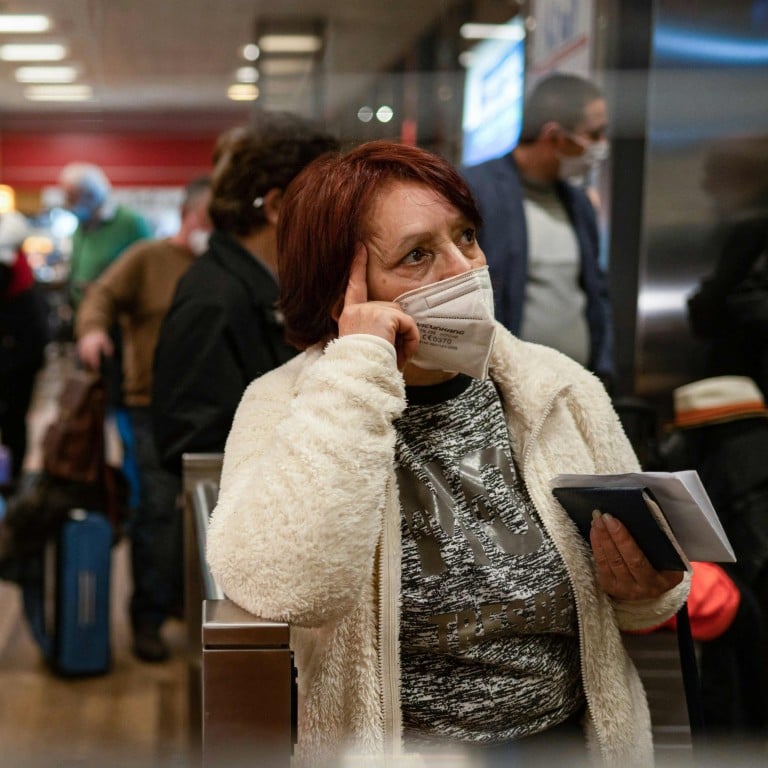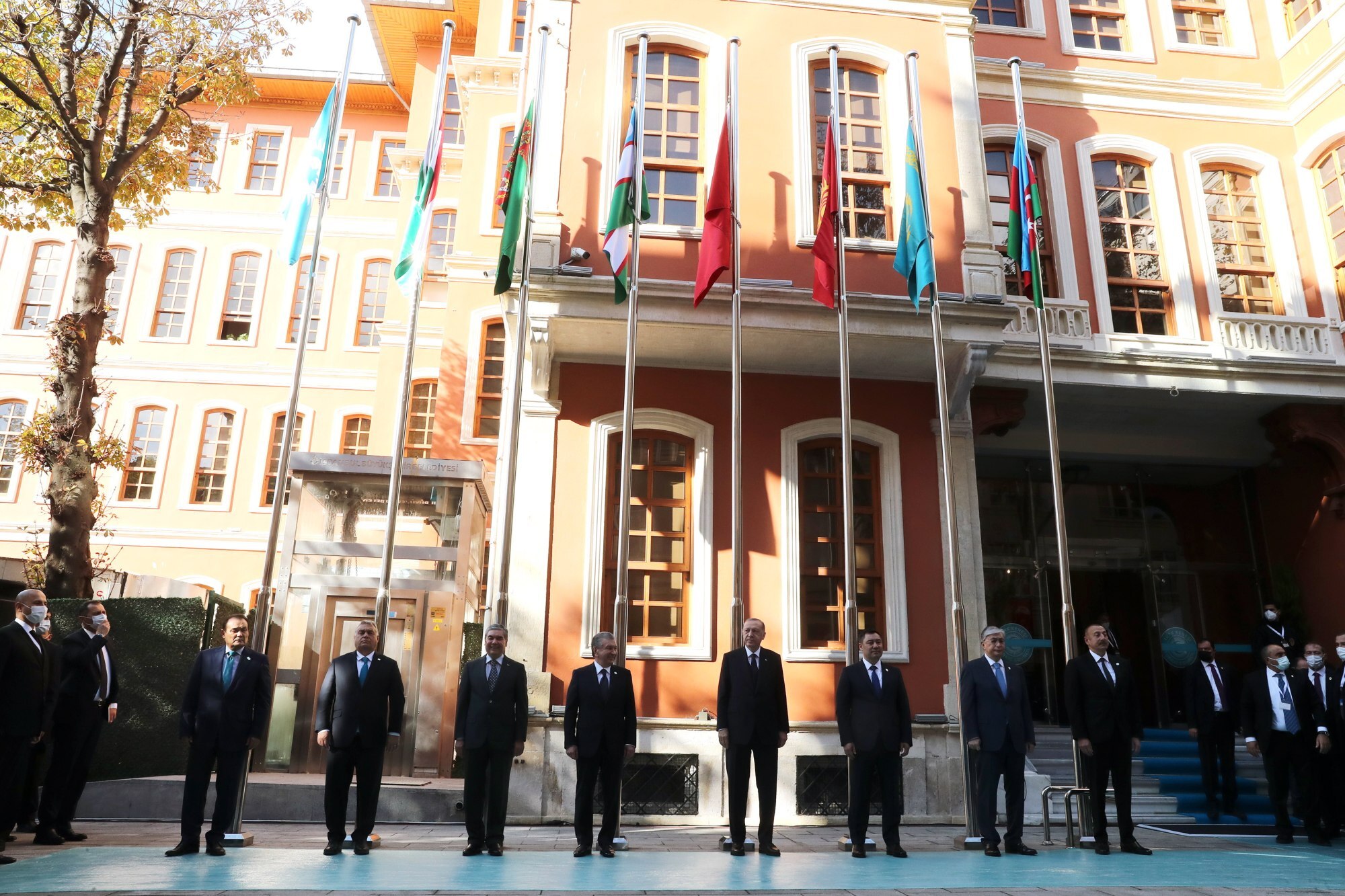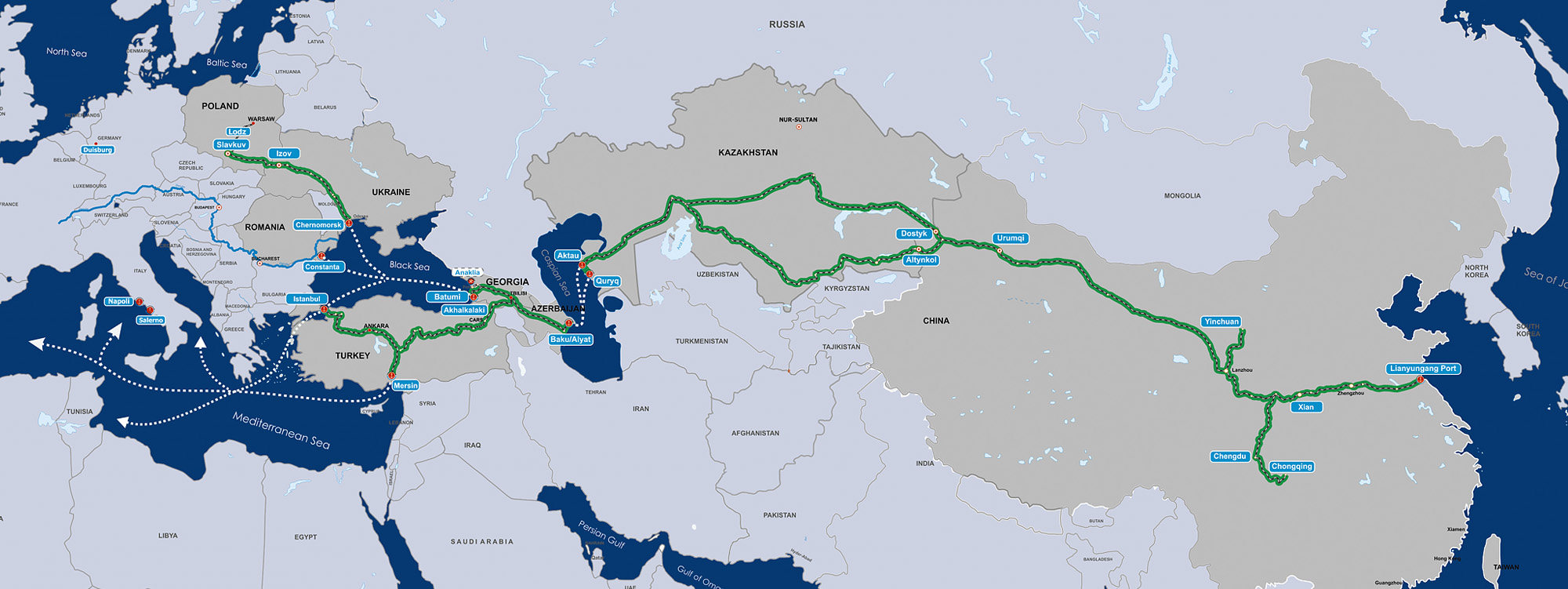
Turkic Council rebranding reflects Turkey’s hopes to broaden ties in Asia
- While it draws strength from a common linguistic and cultural heritage, the Organisation of Turkic States is not involved in ethnicity-based politics among its members or in third countries
- The revamped body is also in line with Turkey’s ‘Asia Anew’ initiative that aims to deepen cooperation with the region
On November 12, the Cooperation Council of Turkic Speaking States – in short, the Turkic Council – renamed itself the Organisation of Turkic States (OTS) at its 8th summit in Istanbul. As this rebranding has aroused much interest in international public opinion, I would like to lay down what the organisation is and how it fits Turkey’s foreign policy priorities.
With its five members (Azerbaijan, Kazakhstan, Kyrgyzstan, Uzbekistan and Turkey) and two observers (Hungary and Turkmenistan), the OTS is built on the 2009 Nakhchivan Agreement establishing the Turkic Council and reaffirming the Turkic states’ adherence to the UN Charter and the norms of international law, including sovereign equality, territorial integrity and the inviolability of internationally recognised borders of states.
Since 2009, eight summits have been held, focusing on various themes like connectivity, youth, SMEs and, recently, green technologies and smart cities. Though its name has changed, the primary task of the organisation remains the same: strengthening mutual confidence and good neighbourliness among its members, never to the detriment of other regional countries. The OTS has an inclusive approach and is not involved in ethnicity-based politics among its members or in third countries.
The OTS can be deemed unique among regional organisations, given that it brings together a Nato member (Turkey), a European Union member (Hungary), two members of the Collective Security Treaty Organisation (Kazakhstan and Kyrgyzstan) and a state upholding permanent neutrality (Turkmenistan) under its umbrella without causing any contradictions among them or in the international system.

What unites both members and observers is language, i.e. the most deep-seated aspect of civilisation that makes dialogue and understanding easier and smoother, compared to other areas of cooperation such as economic interests and security concerns.
Although official interactions in the form of summitry among today’s OTS members date back to 1992, following the independence of many Turkic states after the dissolution of the Soviet Union, there is also a deeper history uniting across millennia members and observers with a common linguistic and cultural heritage.
This is also reflected in the scope of the OTS observer status, determined at the Istanbul summit, which requires the acceptance of a language belonging or related to the Turkic language family as an official language of the observer state at the national level.
Another critical area of priority is “sustainable multimodal connectivity”. This is why the OTS aims to render the Trans-Caspian International East-West Middle Corridor one of the shortest and safest transport links across Eurasia and, accordingly, promote the Zangezur corridor to consolidate the connectivity of South Caucasus with Europe and Central Asia.
Consequently, one fruitful example of future engagement with third parties might be the effort to bolster the complementary aspects of the Middle Corridor with other connectivity initiatives such as China’s Belt and Road Initiative.

Moreover, the OTS is in perfect harmony with Turkey’s “Asia Anew” initiative, launched in 2019. The initiative rests on the observation that the rise of Asia, soon to account for more than half of the global economic output, will be one of the defining features of the 21st century.
Accordingly, Turkey hopes to broaden its ties with its Asian partners, keeping in mind the vast political, economic and cultural diversity of the continent and supporting the OTS as one of the many effective tools of regional cooperation.
Establishing friendly relations between OTS members and their neighbours is not only an OTS goal, but also a key component of Turkish foreign policy in the Asian context.
Kazakhstan envoy affirms China links, downplays pan-Turkism fears
In this respect, the first meeting of the 3+3 regional consultations at the deputy foreign ministerial level attended by Armenia, Azerbaijan, Iran, Russia and Turkey on December 10 and the launch of a normalisation process between Turkey and Armenia – with the first meeting between their special representatives held in Moscow on January 14 – are the latest indicators of Turkey’s commitment to regional peace.
The OTS takes its authority from its members’ deep-rooted tradition of speaking Turkic languages. But what makes the OTS even stronger is its commitment to speak the language of cooperation with the wider world.
Turkey will continue to support the OTS as a platform of peace and prosperity, with the ultimate aim of achieving a more representative and effective international system.
A. Emin Önen has been serving as the Ambassador of Turkey to the People’s Republic of China since December 2017

